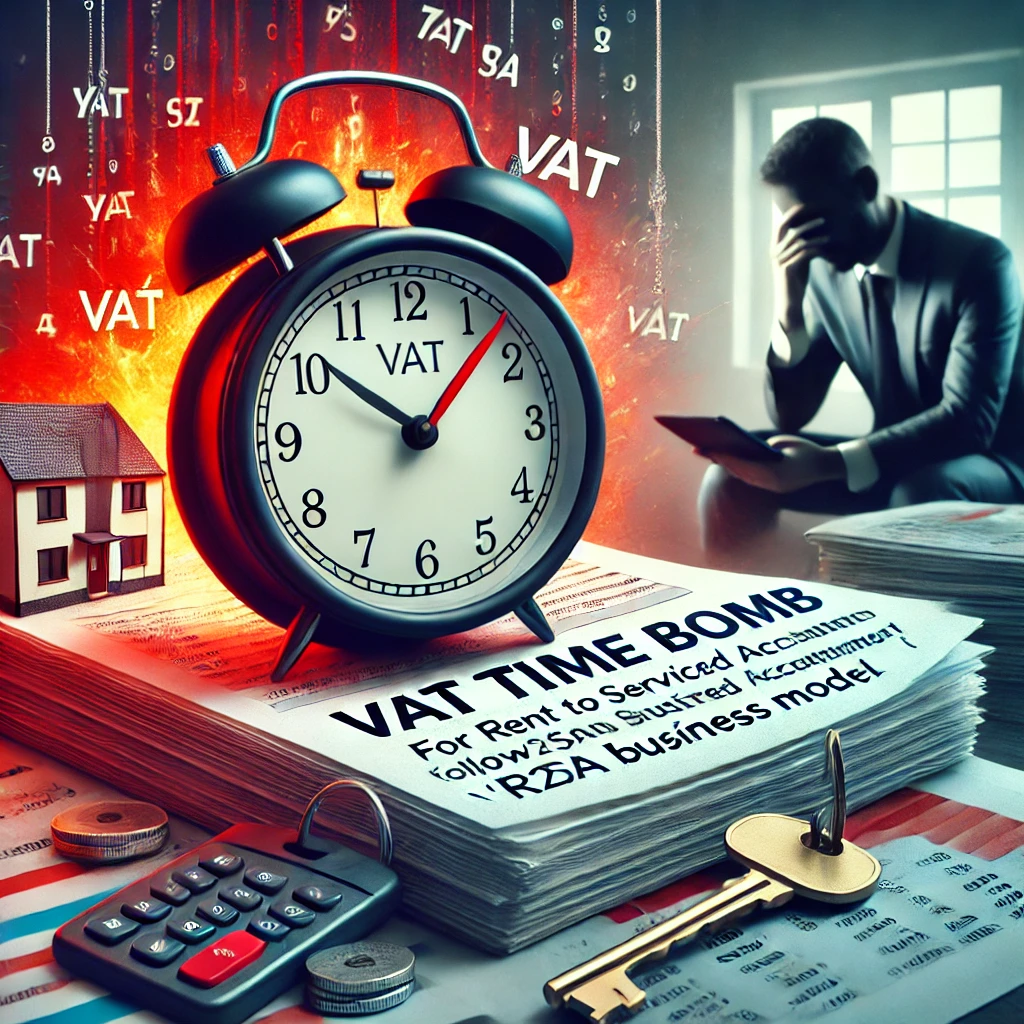
9:45 AM, 21st January 2025, About 4 hours ago 1
Text Size
For years, the Rent to Serviced Accommodation (R2SA) business model has been championed as a low-cost entry point into property investment. Promoted heavily by property education courses, this strategy involved leasing residential properties, forming Limited Companies, and subletting those properties as short-term lets under the Tour Operators’ Margin Scheme (TOMS). However, the recent HMRC v Sonder Europe Ltd Upper Tribunal ruling has turned this model into a potential financial disaster.
The implications are far-reaching, not just for future VAT liabilities but also for historical tax years. HMRC may now revisit past VAT filings, leaving businesses and directors scrambling to assess their exposure—and in some cases, protect their personal assets.
The Sonder Europe ruling confirmed that many R2SA businesses cannot use TOMS to reduce VAT liabilities. Key findings from the Tribunal included:
The ruling forces businesses to account for VAT on the full value of their supplies rather than just their profit margins. This could result in an effective 20% increase in tax liability—a crippling burden for many.
The decision also raises a critical question: will HMRC attempt to pierce the corporate veil? For R2SA businesses operated through Limited Companies, directors often believed they were shielded from personal liability. However, HMRC could pursue directors under certain circumstances, including:
One tax specialist warned, “HMRC is becoming increasingly aggressive in pursuing directors personally when they believe there has been abuse of the corporate structure.”
Under VAT legislation, HMRC can reopen past returns for up to four years—or up to 20 years in cases of deliberate misrepresentation. This means R2SA businesses that followed TOMS guidance could face:
“The combination of backdated liabilities and penalties could bankrupt even well-established businesses,” one VAT adviser noted.
Many R2SA operators were introduced to this business model through property education courses that painted a simplified picture of VAT compliance. While these courses promised a fast track to wealth, they often failed to address the complexities of VAT law and the risks of using TOMS.
One affected operator shared, “I followed the course advice to the letter. Now I’m looking at years of backdated VAT and wondering how I’ll pay.”
The Sonder Europe ruling raises the question of whether these course providers could face scrutiny for promoting models that may not align with VAT regulations.
If your business followed the R2SA model, it’s vital to act immediately to mitigate potential risks:
There is still a possibility that Sonder Europe will appeal the decision to the Supreme Court. While an appeal might buy the industry some time, experts caution that businesses should not rely on this as a long-term solution.
“Even if the case is appealed, the likelihood of overturning the Upper Tribunal’s decision is slim,” one solicitor remarked. “Operators must prepare for the worst and start restructuring now.”
The Sonder Europe ruling signals a seismic shift in the R2SA business model. Operators, property owners, and investors must now grapple with the reality of higher VAT liabilities, increased scrutiny from HMRC, and the potential for significant financial losses.
Questions remain about the viability of this model moving forward:
Are you a property owner, operator, or investor affected by this ruling? Share your thoughts and strategies in the comments below:
Let’s work together to navigate this challenging time and ensure a sustainable path forward for the serviced accommodation industry.
The Sonder Europe ruling is a wake-up call for the R2SA industry. With HMRC likely to pursue backdated VAT liabilities and potentially target directors personally, now is the time to act. By seeking expert advice and proactively addressing risks, operators can protect their businesses and personal assets.
Don’t wait for HMRC to knock—be prepared when they do.
Rupert Chapman
Become a Member
If you login or become a member you can view this members profile, comments, posts and send them messages!
Sign Up10:22 AM, 21st January 2025, About 4 hours ago
Many professionals were somewhat surprised at the FTT decision.
But TOMs is not a relief, nor an optional scheme.
Those who applied TOMs following the FTT decision, based on their circumstances reflecting Sonder, were acting in accordance with the law.
It would be grossly unfair if penalties were applied in such circumstances.
Also some leniency ought to be applied to the payment of VAT.
But I know these sentiments will not be reflected in the approach of HMRC.
The problem is whether they can legitimately continue trading with this new liability that is likely to make them insolvent.
The 14th Feb appeal deadline is the key date for this decision.
Owners who have leased their properties to operators, as opposed to using agency style operators, ought to be mindful that these operators could disappear overnight with their money.